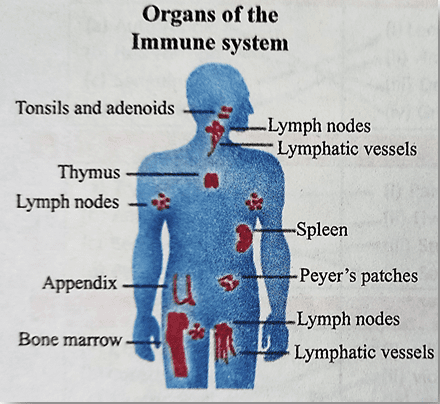Immunity:
The immunity system, which is made up of special cells, proteins, tissues, and organs, defends people against germs and microorganisms every day. In most cases, the immune system does a great job of keeping people healthy and preventing infections. But sometimes problems with the immune system can lead to illness and infection.
How human beings are protected from disease-causing organisms? The immune system is the body’s defense against infectious organisms and other invaders. Through a series of steps called the immune response, the immune system attacks organisms and substances that invade body systems and cause disease.
Concept of Immunity:
The immune system is made up of a network of cells, tissues, and organs that work together to protect the body. The cells involved are white blood cells, or leukocytes, which come in two basic types that combine to seek out and destroy disease-causing organisms or substances. Leukocytes are Produced or stored in many locations in the body, including the thymus, spleen, and bone marrow.

For this reason, they’re called lymphoid organs. There are also clumps of lymphoid tissue throughout the body, primarily as lymph nodes, that house the leukocytes. The leukocytes circulate through the body between the organs and nodes via lymphatic vessels and blood vessels. In this way, the immune system works in a coordinated manner to monitor the body for germs or substances that might cause problems. The two basic types of leukocytes are:
1. Phagocytes, cells that chew up invading organisms.
2. Lymphocytes, calls that allow the body to remember and recognize previous invaders and help the body to destroy them.